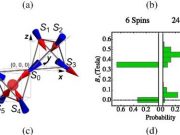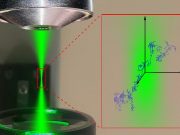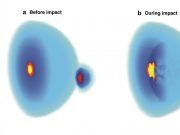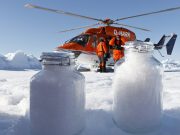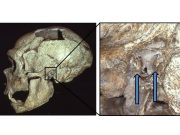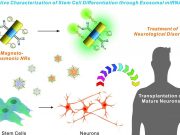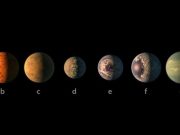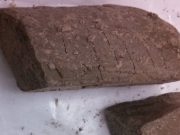Breakthrough in understanding of magnetic monopoles could signal new technologies
A breakthrough in understanding how the quasi-particles known as magnetic monopoles behave could lead to the development of new technologies to replace electric charges.
Researchers...
How many Earth-like planets are around sun-like stars?
A new study provides the most accurate estimate of the frequency that planets that are similar to Earth in size and in distance from...
Researchers use new tools of data science to capture single molecules in action
In high school chemistry, we all learned about chemical reactions. But what brings two reacting molecules together? As explained to us by Einstein, it...
Young Jupiter was smacked head-on by massive newborn planet
A colossal, head-on collision between Jupiter and a still-forming planet in the early solar system, about 4.5 billion years ago, could explain surprising readings...
Microplastic drifting down with the snow
Over the past several years, microplastic particles have repeatedly been detected in seawater, drinking water, and even in animals. But these minute particles are...
Neanderthals also got ‘surfer’s ear,’ suggesting they liked to fish
What do surfers, kayakers and Neanderthals have in common?
New research published Wednesday revealed that abnormal bony growths in the ear canal, also called "surfer's...
New nanotechnology could aid stem cell transplantation research
Nanotechnology developed at Rutgers University-New Brunswick could boost research on stem cell transplantation, which may help people with Alzheimer's disease, Parkinson's disease, other neurodegenerative...
Climate deniers get more media play than scientists: study
Climate deniers have garnered far more media attention than prominent climate scientists over the years, fuelling public confusion and slowing the response to global...
James Webb Space Telescope could begin learning about TRAPPIST-1 atmospheres in a single year,...
New research from astronomers at the University of Washington uses the intriguing TRAPPIST-1 planetary system as a kind of laboratory to model not the...
Arctic Ocean could have no September sea ice if global average temperatures increase by...
Arctic sea ice could disappear completely through September each summer if average global temperatures increase by as little as 2 degrees, according to a...
Researchers study largest impact crater in the US, buried for 35 million years
About 35 million years ago, an asteroid hit the ocean off the East Coast of North America. Its impact formed a 25-mile diameter crater...


